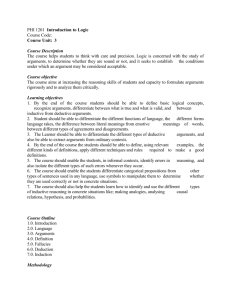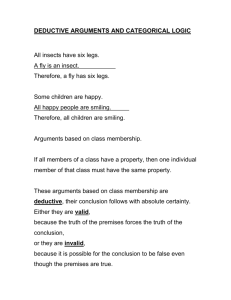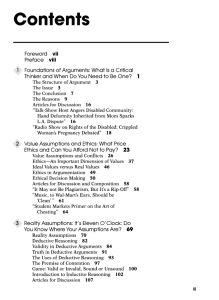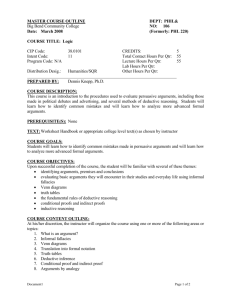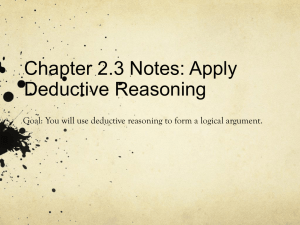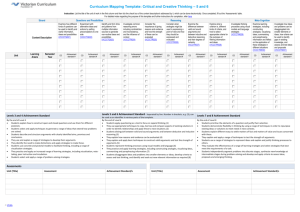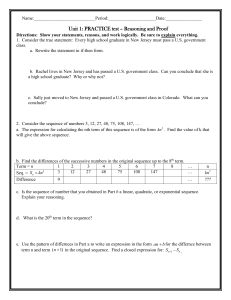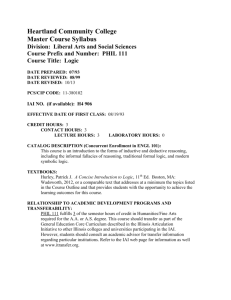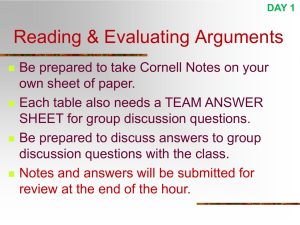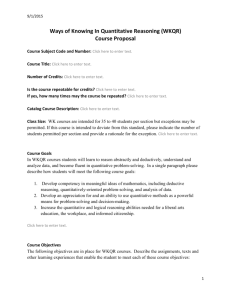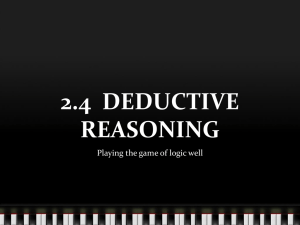PHI 2101 Logic - Makerere University Courses
advertisement
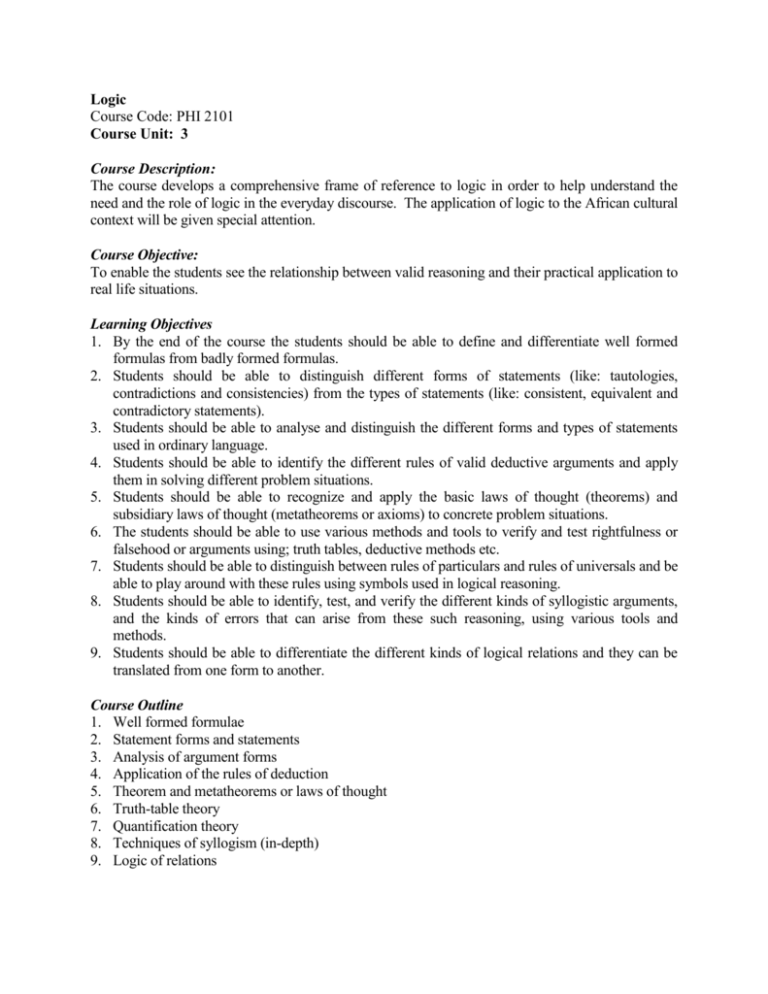
Logic Course Code: PHI 2101 Course Unit: 3 Course Description: The course develops a comprehensive frame of reference to logic in order to help understand the need and the role of logic in the everyday discourse. The application of logic to the African cultural context will be given special attention. Course Objective: To enable the students see the relationship between valid reasoning and their practical application to real life situations. Learning Objectives 1. By the end of the course the students should be able to define and differentiate well formed formulas from badly formed formulas. 2. Students should be able to distinguish different forms of statements (like: tautologies, contradictions and consistencies) from the types of statements (like: consistent, equivalent and contradictory statements). 3. Students should be able to analyse and distinguish the different forms and types of statements used in ordinary language. 4. Students should be able to identify the different rules of valid deductive arguments and apply them in solving different problem situations. 5. Students should be able to recognize and apply the basic laws of thought (theorems) and subsidiary laws of thought (metatheorems or axioms) to concrete problem situations. 6. The students should be able to use various methods and tools to verify and test rightfulness or falsehood or arguments using; truth tables, deductive methods etc. 7. Students should be able to distinguish between rules of particulars and rules of universals and be able to play around with these rules using symbols used in logical reasoning. 8. Students should be able to identify, test, and verify the different kinds of syllogistic arguments, and the kinds of errors that can arise from these such reasoning, using various tools and methods. 9. Students should be able to differentiate the different kinds of logical relations and they can be translated from one form to another. Course Outline 1. Well formed formulae 2. Statement forms and statements 3. Analysis of argument forms 4. Application of the rules of deduction 5. Theorem and metatheorems or laws of thought 6. Truth-table theory 7. Quantification theory 8. Techniques of syllogism (in-depth) 9. Logic of relations Methodology The facilitator(s) will employ the following methods; Lectures, individual presentations, textual criticism, guest lectures Assessment Mode Course work exercises 30% End of semester examination 70% Reading List 1. Barker F. Stephen, The Elements of Logic, 2nd. ed. McGraw-Hill, New York 1985 2. Copi M. Irving, Introduction to logic, 10th ed. Prentice Hall, New Jersey 1998 3. Freeman B. James, Thinking Logically, Prentice Hall, New Jersey 1988 4. Iseminger Gary, An Introduction to Deductive Logic, Meredith Corporation, New York 5. Kearns T. John, Deductive Logic, Meredith Corporation, New York 1969 6. Lemmon E. J., Beginning Logic, Chapman and Hall, London 1965 7. Quine W. V., Philosophy of logic, Prentice - Hall, Englewood Cliffs, New Jersey 1970 8. Sanguineti J. Jose; Logic and Gnoseology, UrbanianaUniversity Press, Rome 1988 9. Shaw Patrick, Logic and it's limits, 2nd. ed. OxfordUniversity Press, Oxford 1997 10. Waller N. Bruce, Critical thinking, Prentice - Hall, New Jersey 1998
